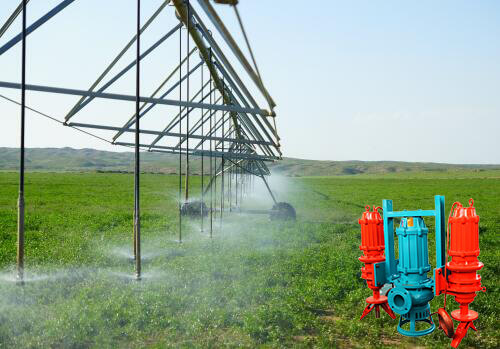How To Choose A Submersible Pump For Agricultural Irrigation
The harsh conditions agricultural pumps face mean they need to be able to be continuously exposed to moisture and debris without frequent breakdowns or the need for extensive maintenance. In agricultural irrigation, choosing the right submersible pump is crucial for efficient and sustainable water management. But with so many options on the market, how do you make the right choice?

The importance of submersible pumps in agricultural irrigation
Submersible pumps are vital in agricultural irrigation, providing farmers with reliable and efficient water management solutions. These pumps are designed to be immersed directly into the water source, requiring no priming or suction lines. Not only does this save time and effort, but it also reduces the risk of contamination from external elements.
- Ability to maintain high-pressure levels over long distances
This ensures that water can be efficiently distributed across vast fields, reaching even the most distant crops. Submersible pumps greatly increase the efficiency of your irrigation system by preventing the pressure losses typically associated with surface-mounted pumps.
- High flexibility
Submersible pumps offer farmers greater flexibility in terms of water depth and location. Due to their sealed design and durable construction materials, these pumps can operate at various depths without issues. This enables farmers to tap into underground water sources or utilize rainwater harvesting technology to ensure a stable water supply to their crops in different seasons.
Submersible pumps have revolutionized agricultural irrigation by bringing many benefits, such as increased efficiency, flexible operating conditions, and reduced risk of contamination. Farmers who incorporate these innovative devices into their irrigation systems can increase productivity while minimizing resource waste.
Factors to consider
1. Understand your farm’s water needs
Assess the size of your farm and determine the amount of water required for each crop or field. This information will help you determine your pump’s capacity and power requirements. Some crops may require constant watering, while others may require intermittent irrigation to thrive. By considering these details, you can choose a submersible pump with the adjustable flow or timers that specifically meet the needs of your crops.
2. Determine flow and head requirements
Flow refers to the amount of water that needs to be pumped per unit of time, while head refers to the vertical distance between the pump and the point where water needs to be transported. It is crucial to calculate the required flow rate based on factors such as crop type, field size and climatic conditions. When determining head requirements, you must consider static head (vertical lift) and dynamic head (friction losses). A fixed head depends on the height at which water is pumped to the delivery point, while dynamic head considers any resistance or pressure loss caused by pipes or fittings. Understanding these two components ensures you choose a submersible pump with adequate capacity for optimal performance.
3. Consider power and electrical requirements
Depending on your location and power availability, you must decide whether to use an electric or diesel-fueled pump. In areas with reliable power supplies, electric pumps can provide added convenience and cost-effectiveness. Diesel-powered pumps are more suitable for remote locations or areas with limited grid power. Evaluating your power options will help determine which type of pump is best for your agricultural operation.
4. Evaluate pump quality and durability
A key factor to consider is the materials used to construct the pump. Look for pumps made from corrosion-resistant materials like stainless steel or cast iron that can withstand the water and chemicals commonly found in agricultural applications. It is also critical to determine whether the pump is designed with features that enhance its durability, such as protective coatings or moisture seals.
Another aspect to evaluate is the efficiency of the motor. A high-quality submersible pump should have an efficient engine, providing optimal performance while consuming less energy. Look for energy-efficient and high-flow pumps to ensure effective irrigation coverage on your farm.
By considering factors such as water source, flow rate, head pressure and power requirements, farmers can select a pump that meets their specific needs. Additionally, evaluating the quality and durability of pump materials is critical to long-term performance. It is also essential to consult an expert or professional for guidance and advice. By thoroughly evaluating these factors, Walker Pumps ensures you select a high-quality and durable option that meets your specific needs while being durable enough to last in demanding agricultural conditions.
